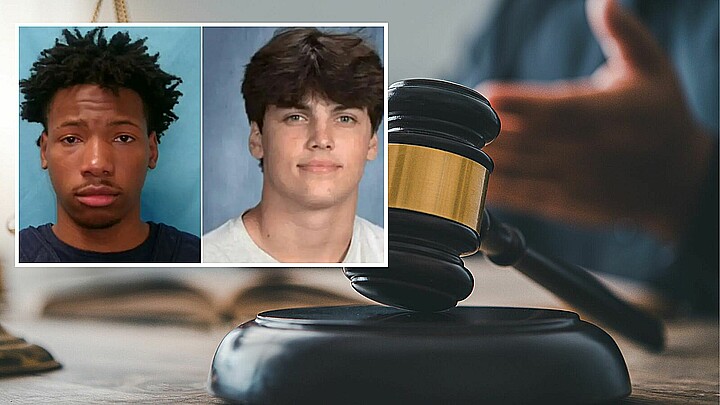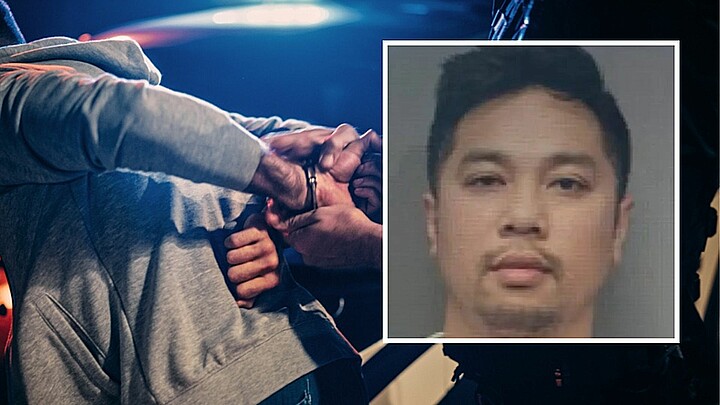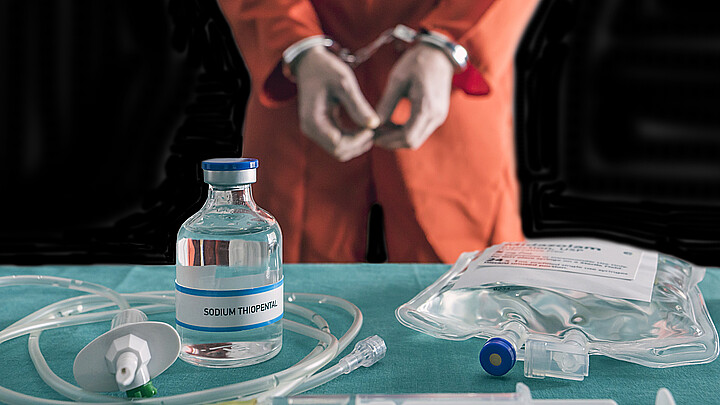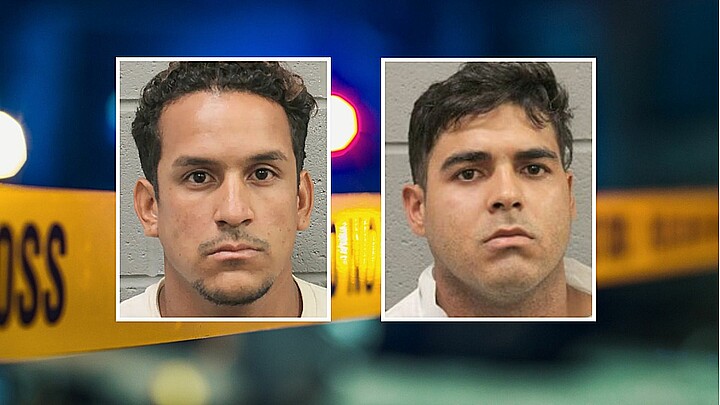Crime
Sentencing continues for man convicted of killing El Paso Sheriff's Deputy
Facundo Chavez was found guilty of killing Deputy Peter Herrera on Thursday and faces the death penalty

August 8, 2023 10:57am
Updated: August 8, 2023 10:59am
The sentencing phase for a man convicted of the capital murder of an El Paso County Sheriff’s Deputy continued Monday at the El Paso County Courthouse.
Facundo Chavez faces the death penalty or life in prison without the possibility of parole for shooting and killing 35-year old Deputy Peter Herrera in March of 2019.
He was convicted Thursday after a whirlwind trial that kept El Paso residents on the edge of their seat and drew attention to the system of justice in a town otherwise known for facing immigration challenges.
Chavez, who now awaits his fate from presiding Judge Diane Navarrete, was convicted of the March 22, 2019 killing after just 30 minutes of jury deliberations.
Defense lawyers, who did not dispute Chavez discharged the firearm that killed Herrera, instead focused on making the case the deputy made the traffic stop for personal reasons, and was therefore not acting as a law enforcement agent at the time the shooting occurred.
They argued the traffic stop went awry as a result of the complicated personal connection between the Herrera and Chavez, and that Herrera developed a relationship with Chavez's girlfriend, Arlene Piña, who became a victim to the officer’s harassing gestures after the two became acquainted in 2019 during a prior police incident.
Prosecutors took aim at that theory, arguing that although Herrera had some prior run-ins with Chavez in the past, the deputy’s relationship was not as deep with Piña as defense lawyers suggested.
“Deputy Herrera did not know who was driving that car,” Asst. District Attorney Michelle Hill argued, suggesting that if Herrera had any nefarious motives for making the stop he would not have called for backup.
They also pointed out that Chavez was not acting in self-defense because Herrera only had a flashlight and ticket reader in his hands when he shot the El Paso Deputy.
Defense attorney Leonard Morales urged the jury to examine Herrera's actions as a law enforcement officer, arguing the traffic stop was illegal and that the deputy was targeting Chavez to build a case against him for personal reasons.
They also took aim at Piña, pointing out that traces of her DNA were on the firearm, arguing she gave Chavez the weapon to incite his anger.
“There was a devil on his shoulder, and that devil was Arlene Piña,” Morales said. "Had it not been for her maybe these two would've never met. In the end, Facundo Chavez killed Deputy Herrera, but we all needed you to know why."
According to investigators, Piña also tried to steal Herrera's gun and had dried blood on her hands when she was arrested.
Morales looked at his client and pointed at Chavez, saying, “you know what you did,” and then told the jury, “it is your job to determine if he acted alone or not.”
When Asst. District Attorney William Dixon made the state’s closing argument, he also pointed at Chavez, and told the jury, “he lied over and over again to you,” alleging Chavez was on edge from the moment he was pulled over—not because he believed he was being targeted over Piña, but because he knew he was in possession of illegal drugs and firearms.
The prosecution also highlighted the fact that Chavez confessed to firing about 15 rounds and even beat the deputy.
The fatal killing was recorded by Herrera’s body camera and a patrol vehicle dashboard camera, depicting Piña getting out of the car and approaching Herrera, who was laying on the roadway.
“Dale a ese (hit that),” Piña was allegedly recorded saying in Spanish. The camera audio also recorded sounds of Chavez purportedly beating the deputy.
After the attack on Herrera, cameras recorded Chavez and Piña returning to their car. They attempted to drive away, but the car stalled and the two ran away, later getting captured in a nearby shed.
Herrera died from his injuries at an El Paso hospital two days later.
Prosecutors attempted to discredit the defense’s version of events, saying Chavez did not have any motive based on defending others.
“The story that [Herrera] harassed [Piña] is ridiculous,” he argued, asserting that the claim was not borne out by phone messages between the parties.
Once jury deliberations began in courtroom number one, it only took 30 minutes for them to return a verdict.
“We the jury find the defendant guilty of capital murder of a peace officer,” the jury foreperson said after the decision, reminding the jury they would return to begin sentencing proceedings on the following day.
Defense lawyers called witnesses to the stand Monday morning, beginning with Chavez's cousin, José Jiménez, who spoke about the close relationship the two shared growing up in Juarez. He said while many other family members did not stay in touch, Chavez did.
He described Chavez as a caring person who loved his family.
“I didn’t come here to downplay what he (Chavez) did. What he did was horrible. I’m just here to plead for compassion,” Jiménez told the judge.
Chavez’s mother, Maria, also took the stand in her son’s death and pleaded with the judge to spare her boy’s life. She said that Chavez suffered a life of abuse at the hands of his father who even broke her son’s jaw at one time.
She said the violence was so bad she took her children and fled from their father, eventually relocating from New Mexico to El Paso, Texas.
She insisted that Chavez had never shown any instances of violence before the Herrera shooting, and that during his four years of incarceration after the incident, he became drug free and came to terms with what he did.
“He (Herrera) didn’t deserve any of this. I created this nightmare, I took his life and it was too early.”
Sentencing proceedings are scheduled to resume Tuesday morning.










